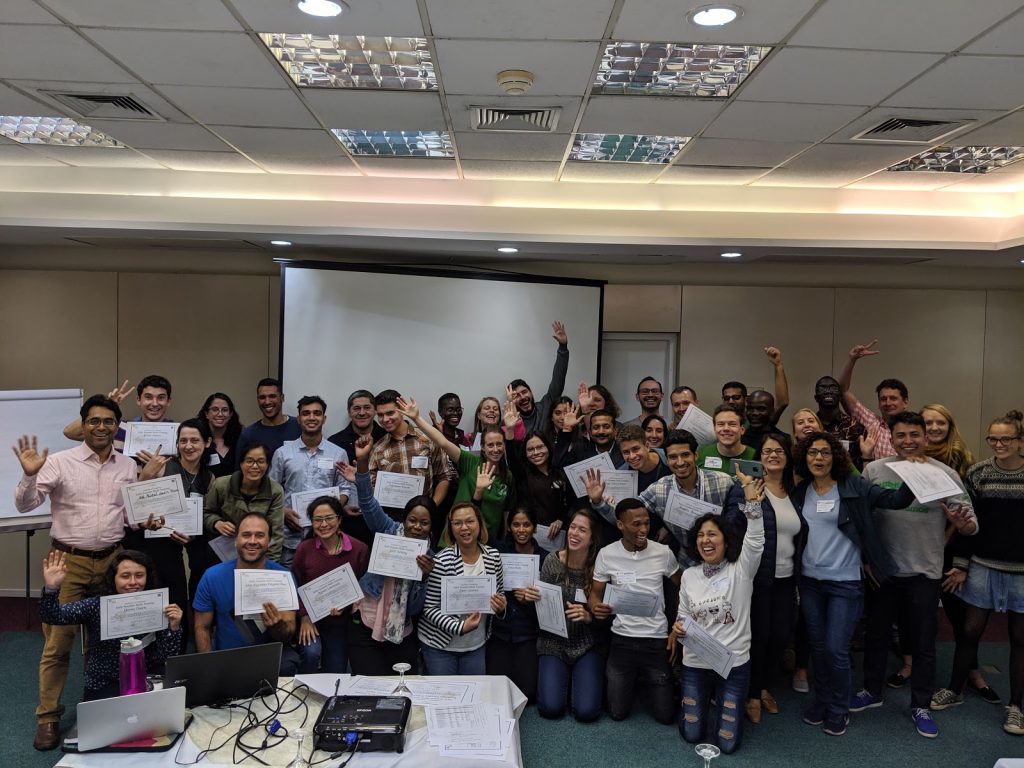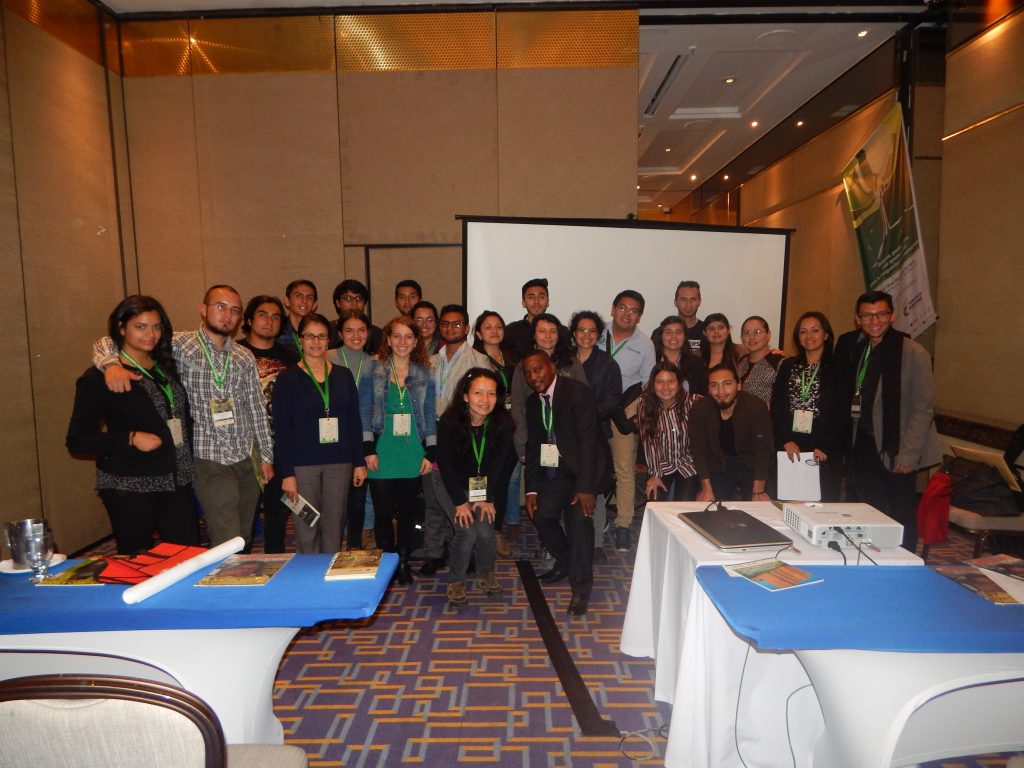IUFRO Spotlight #77 – Stepping up the Global Discussion on Forest Education
“The future is for the young generation,” said Dr. Shirong Liu of the Chinese Academy of Forestry.
“And,” he added, “changes in the forest sector have led to new trends in forest education globally.

“Multidisciplinary solutions are needed to address most forest-related challenges. So, accordingly, forest education needs to meet diverse higher demands and generate novel ways of teaching and learning.”
Dr. Liu, who is also IUFRO Vice-President for Task Forces (TFs), was speaking about the relevance of the various TFs he is overseeing and of the particular relevance of the TF on Forest Education.
That TF is a joint effort between IUFRO and the International Forestry Students’ Association (IFSA) that brings together the different perspectives within the education environment.
“Education plays important roles for individuals and societies, it contributes to long term economic growth, improves income to individuals, and creates awareness that fosters positive behaviors,” said Prof. Sandra Rodriguez, the IUFRO Coordinator of the Joint TF.
“Through education, we can address our most pressing issues, such as climate change, poverty, water scarcity, and biodiversity loss,” said Prof. Rodriguez, of the Faculty of Animal Science and Ecology at the Autonomous University of Chihuahua, Mexico.
“Forest education can be considered a powerful means to collectively reduce our ecological footprint, to reconnect people with nature and to encourage citizens to become part of a multi-stakeholder coalition,” she said.
Alex Onatunji, a former Northern Africa Regional Representative of IFSA and the IFSA Coordinator of the Joint TF, added: “The TF is a bridge – to provide current research on forest education around the world; to build capacities of students to meet current job trends in the forest sector and also to improve the teaching of forest and related sciences on a global level.
“Students, educators, international organizations, governments, policy-makers, networking organizations and platforms, the private sector and researchers, among other audiences have, and will continue to, benefit from the Joint TF work,” he said.
Prof. Rodriguez also noted that “our first beneficiaries are students and future forestry students. However, I think that school and university administrators, teachers, and professors can also benefit from our work.”
One of the primary reasons for the existence of the Joint TF is to identify, compile and communicate the gaps and challenges in forest education, especially highlighting new fields of forest education.
“We felt there needed to be more effort put into addressing forest research globally,” said Prof. Rodriguez. “While there is a large body of knowledge in environmental education, research on forest education is meager.

“This TF has participated in a large number of congresses and symposiums to raise awareness and motivate young scientists to include forest education in their work.”
In terms of generating novel, innovative ways of teaching and learning, “ultimately changes in education rely on the states and their legislation,” Prof. Rodriguez noted, and that, at times, can be a challenge.
“Limited funding is our major obstacle,” Mr. Onatunji said. “It makes it difficult to carry out many TF projects and/or support as many student capacity building activities.”
Online teaching/learning has been considered as a mechanism to disseminate knowledge about the importance of forest conservation and management, Prof. Rodriguez said.
The outbreak of the COVID-19 pandemic and its related lockdowns have made the idea of online delivery more pressing and more challenging. In that sense, the TF is like the rest of the world – doing its best to cope with the changes necessitated by the situation.
Because of the pandemic, the Joint TF has planned to host some webinars on emerging issues in collaboration with other commissions of IFSA.
Mr. Onatunji agrees with the concept of university forestry education adapting to deliver courses online. But he points out that it’s not an easily attainable solution for everyone.
“In my country, Nigeria, all academic activities have been suspended. Most universities do not have online teaching capacities and were not prepared for this. So, not all students are able to attend online alternatives such as webinars.
“And, due to the lockdown, many events that serve as capacity-building activities have been suspended, which has a ripple effect on students,” said Mr. Onatunji. “In addition, the high cost and slowness of the internet would be another difficulty for many students.”
Prof. Rodriguez understands the obstacles: “Hands-on experience is a major component of forest education. Not being able to practice in the field is frustrating for teachers and students.
“And internet access is still a challenge in some parts of the world. As a professor I have to be flexible and do my best to accommodate students’ needs and the limitations that arise because of poor internet connections.”
__________________________
Find out more about the Joint IUFRO-IFSA Task Force on Forest Education here https://www.iufro.org/science/task-forces/forest-education/
Listen to a talk given by Prof. Rodriguez in Spanish, in which she also informs about the Joint Task Force: https://www.iufro.org/science/task-forces/forest-education/activities/
###
View all IUFRO Spotlights at http://www.iufro.org/media/iufro-spotlights/

Leave a Reply